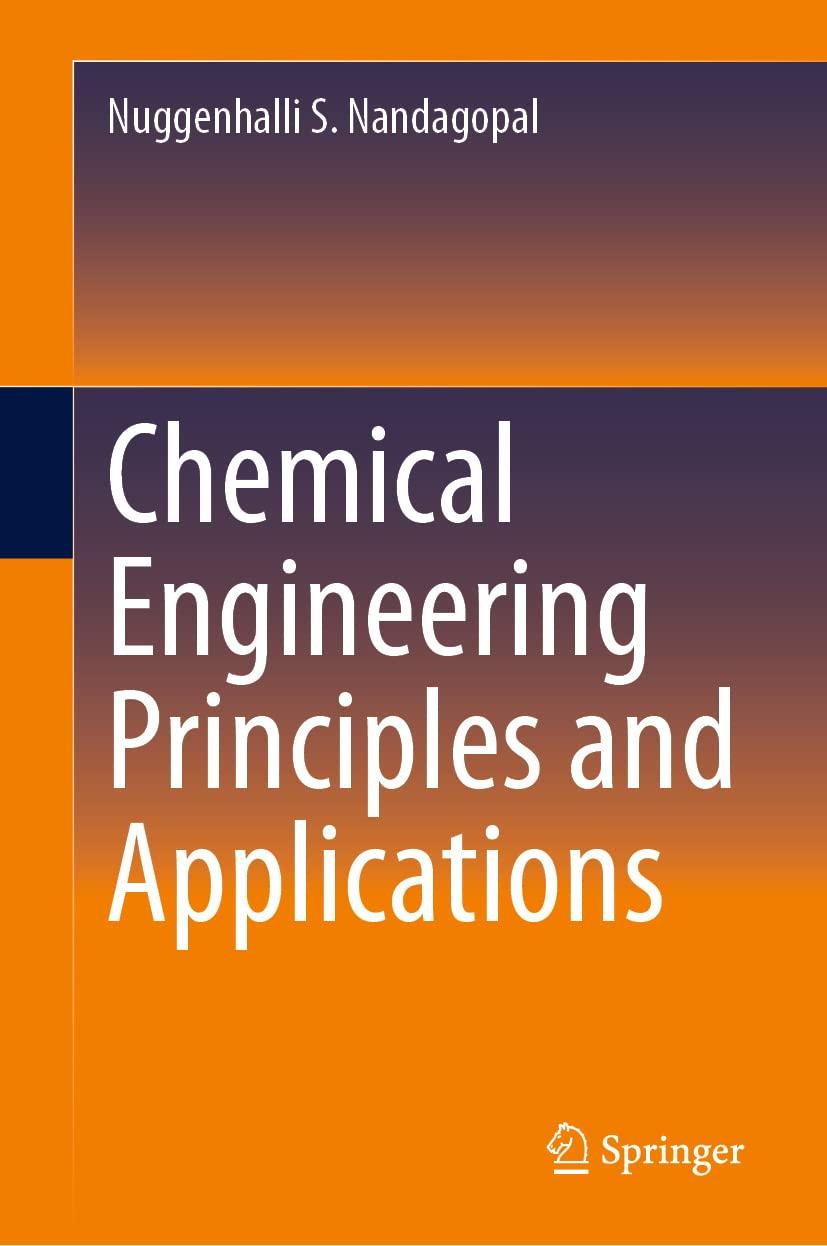Methanol can be produced by the reaction of carbon dioxide and hydrogen as per the following reaction:
Question:
Methanol can be produced by the reaction of carbon dioxide and hydrogen as per the following reaction:
![]()
The fresh feed available is 500 kmol/hr with 2% inerts and the rest being the reactants in stoichiometric proportion. The feed to the reactor consists of fresh feed and the recycle stream. The single pass conversion of carbon dioxide in the reactor is 25%. As a result, the effluent stream from the reactor is a gas mixture of unreacted reactants, products, and inerts. The reactor effluent stream is fed to a condenser where methanol and water condense and the non-condensable carbon dioxide, hydrogen, and inerts are removed to be part of the recycle stream. A portion (10%) of the non-condensable gas stream is purged to prevent the accumulation of inerts in the system and the rest is recycled. It is desired to achieve an overall conversion of 80% of carbon dioxide to methanol. Molecular weights (kg/kmol):
![]()
Determine:
A. the production rate of methanol (kg/hr).
B. the rate of condensation of water.
C. the molar flow rate and composition of the recycle stream.
D. the molar flow rate and composition of the reactor feed stream.
E. the molar flow rate and composition of the gas stream from the reactor.
F. the molar flow rate and composition of the purge stream.
Step by Step Answer:

Chemical Engineering Principles And Applications
ISBN: 9783031278785
1st Edition
Authors: Nuggenhalli S. Nandagopal





